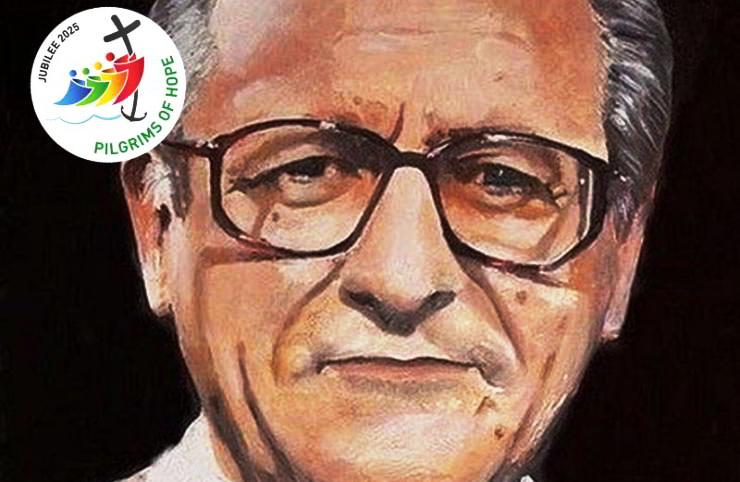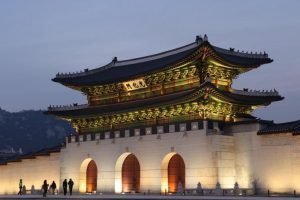The murder of Pierre Claverie, a Dominican and Bishop of Oran in Algeria, was the latest in a series of tragic murders that plunged the Church in Algeria into mourning between 1994 and 1996. The other victims were seven Trappist monks, four African missionaries, a Marist monk, and several religious of various congregations.
Pierre Claverie was born in Algiers in 1938. He was a native son of colonial Algeria. As an adult, he confessed that he had lived all his youth among the Arabs without ever meeting them. “I spent my childhood in Algiers, in a district of this cosmopolitan Mediterranean city. Unlike other Europeans born in the countryside or in small towns, I never had any Arab friends. We were not racist, just indifferent. We ignored the majority of the country’s population.”
“The Arabs were part of the landscape of our outings, the background of our encounters and our lives. They were never companions…. I had to listen to numerous sermons about love of others, because I was a Christian and also a scout, but I never realized that even the Arabs were my neighbour. A war was needed for that bubble to burst,” he explained much later, recognizing that he had lived all his youth in a “colonial bubble.”
This awareness, which coincided with the outbreak of war in Algeria and its proclamation of independence, was a real turning point for him, leading him to enter religious life in the Dominican Order in 1958. Pierre studied at Le Saulchoir, where his teachers were the great Dominican theologians whose work helped to shape the ecclesiology proclaimed by the Second Vatican Council: Yves Congar, Marie-Dominique Chenu and André Liégé.
He graduated in 1967 with a solid intellectual and spiritual formation that would serve him well later. Ordained a priest, Pierre joined the small Dominican community in Algiers, which, under the leadership of Cardinal Duval, helped to create a new type of Church, a Church for a country with a predominantly Muslim population.
For this reason, he learned Arabic well enough that he could teach it to others. But above all, “he learned Algeria,” establishing a magnificent network of Algerian friends who meant a great deal to him. As the country began the process of reconstruction after a bloody war (1954-1962), there was a lot to do in the education and training of leaders.
Pierre Claverie made his contribution with the priests and religious of Algeria who put themselves at the service of their neighbours, collaborating in the development of the country. It was a very happy period of his life. He offered a beautiful homage to these friends, present in the Cathedral of Algiers on the day of his episcopal ordination: “My Algerian brothers and friends, I owe to you who and what I am today. You welcomed me and supported me through your friendship. I owe to you my discovery of Algeria.”
“Although it is my country, I lived in it as a stranger throughout my youth. With you, learning Arabic, I learned, above all, to speak and understand the language of the heart that of fraternal friendship through which peoples and religions communicate. In this regard, perhaps I am weak and fallible but I believe that this friendship withstands time, distance, and separation. Because I believe that it comes from God and leads to God.”
His solid formation led him to participate decisively in the theological reflection of a Church that needed to rethink the meaning of its presence in Algeria. It was not there to proselytize among Muslims. On the contrary, through the witness of faith and its gratuitous action in the service of the country and of its humblest people, the Church could offer an active presence of evangelical love and help heal the wounds inherited from the colonial past and the war of liberation.
Only the fruitfulness of witness and the work of the Holy Spirit can convert hearts and move them in freedom towards Christ and his Church. In this capacity, Pierre Claverie assumed the direction of the diocesan centre of studies in Algiers and collaborated with the bishops on the drafting of theological documents that attempted to articulate the meaning of a Christian presence in a Muslim world.
In 1981, his strong personality and personal charisma earned him the nomination as Bishop of Oran, in the west of the country. His diocese had few faithful, but it was international, and Pierre loved his role as a builder of communion, not only among Christians of different origins, but also with Muslim friends of the Church. He chose to use the land and buildings of his diocese for the needs of the country: libraries for students, a centre for the disabled, a training centre for women.
With his Muslim collaborators, he established relationships of trust and friendship that would prove to be precious during the tragic decade of the 1990s. God alone can bring a heart to conversion. The Christian faithful are few, but a true Christian witness can be given to all the Muslims with whom Christians live and work daily.
Beginning in 1990, Algeria fell into a decade of violence. The new political openness of a multi-party system after twenty-five years with a single-party regime favoured the emergence of radical religious parties. At the time of the local legislative elections, these parties garnered the majority of the votes and were just about to take power when, in 1992, the military regime decided to stop the electoral process to prevent the establishment of a religious dictatorship. Frustrated by not being able to obtain power through voting, the fundamentalist tried to take it with arms.
They began by assassinating hundreds of representatives of the state (judges, police officers), then moved on to the symbolic figures of an open civil society (journalists, writers), and finally, they targeted foreigners. The murder of the first two Christian religious, in May 1994, was a trauma for everyone.
The killing of the seven Trappist monks in 1996 scandalised the great majority of Muslims. Pierre Claverie was the last Christian killed. It must be added that he had not only chose to remain in Algeria but also, and above all, to speak courageously, expressing himself publicly in favour of a “plural, non-exclusive humanity.” He said, “We are exactly in our proper place since it is only in this place that we can glimpse the light of the Resurrection and, with it, the hope of a renewal of our world.”
He was assassinated on August 1, 1996, along with a Muslim friend, Mohamed Bouchikhi, who had chosen to stay with him despite the risks. His death shocked not only Christians but also many Muslim Algerians who, at his funeral, said they had come to weep over a man who was also “their” bishop.
The ceremony of beatification of Pierre Claverie and his 18 fellow martyrs took place in Orán on the 8th of December, 2018.









